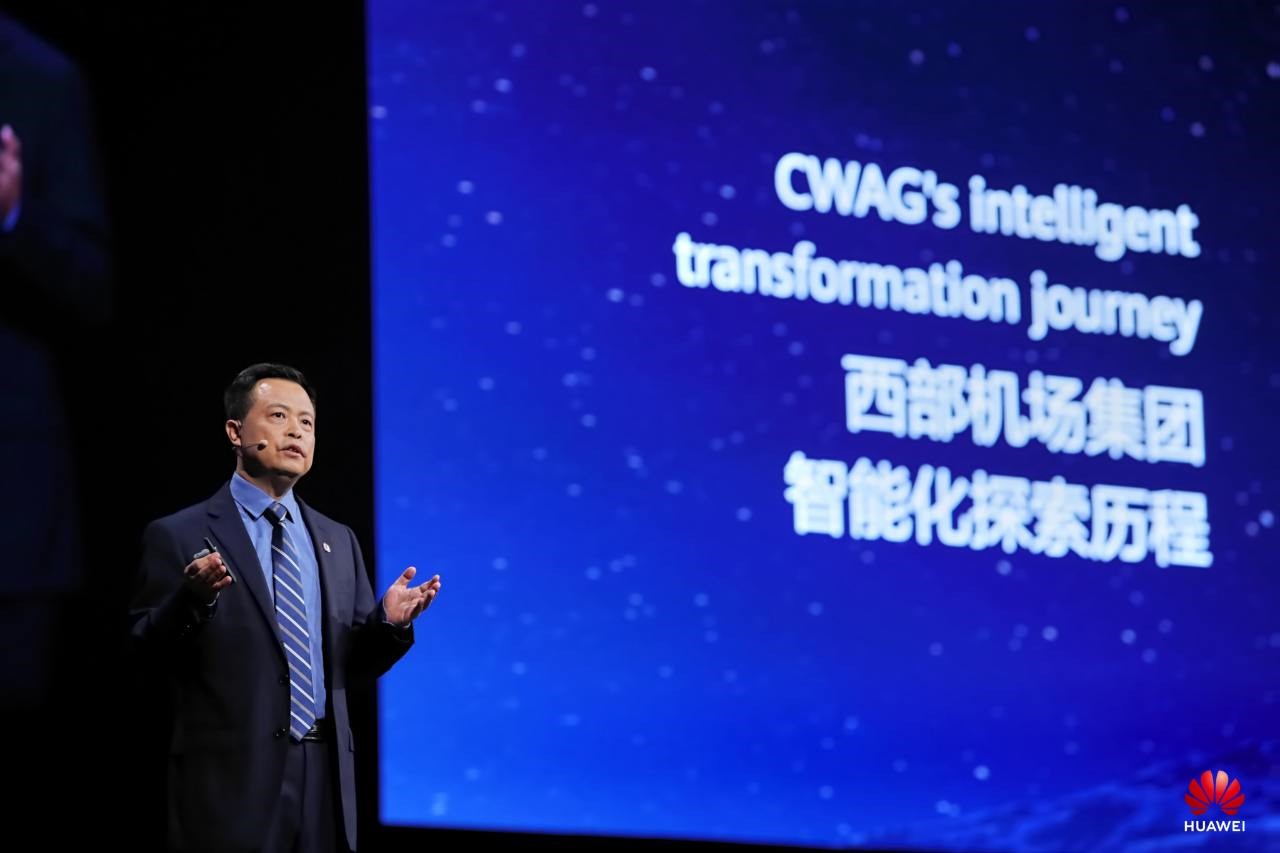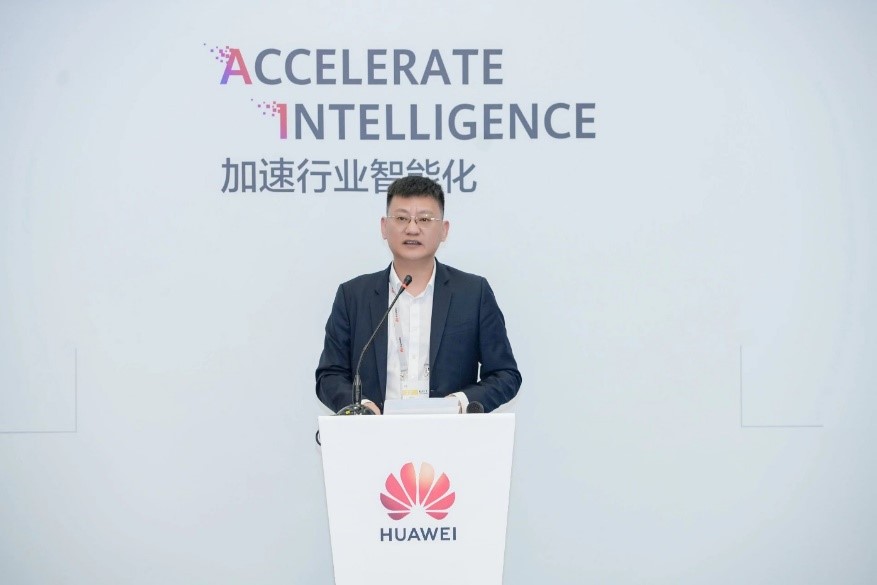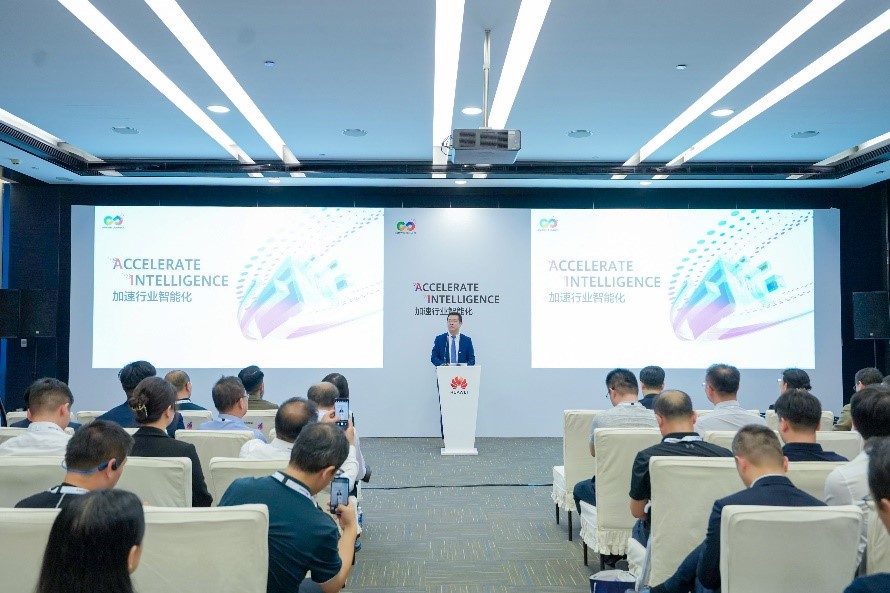This site uses cookies. By continuing to browse the site you are agreeing to our use of cookies. Read our privacy policy>
![]()
This site uses cookies. By continuing to browse the site you are agreeing to our use of cookies. Read our privacy policy>
![]()
Enterprise products, solutions & services
[Shanghai, China, September 20, 2023] During HUAWEI CONNECT 2023, Huawei's Aviation & Rail BU held three global summits specifically oriented to the BU's niche. Huawei together with industry customers, leaders, technical experts, and partners discussed and shared their best practices for accelerating industry intelligence.
Using an upgraded digital and intelligent foundation, Huawei dives deep into a wide variety of industry scenarios and expedites the intelligent development of aviation and rail through multi-dimensional awareness, ubiquitous connectivity, and open platforms.
Industry intelligence is a systematic endeavor. China West Airport Group (CWAG) chose Huawei to jointly develop a comprehensive intelligent transformation strategy.
According to Lin Bin, CWAG's Deputy General Manager, his company has created 35 intelligent solutions for security, operations, services, and other scenarios using Huawei's high-performance computing power and open intelligent platforms, as well as advanced algorithms for the industry.

For airport operations, digital and intelligent ground handling solutions forecast the real-time status of flights, passengers, and resources, as well as promptly generating warnings. They also intelligently dispatch ground handlers as needed. The solutions increase ground support efficiency by 20% and shorten the time support takes by 17%. In addition, smart airport operation solutions have introduced the optimal flight plan result model to achieve best supply-demand matching and AI-assisted operation command.

Ever-evolving technologies have brought both challenges and opportunities to enterprise digital transformation and intelligent upgrade. Li Junfeng, Vice President of Huawei and CEO of Huawei's Aviation & Rail BU, delivered an opening speech at the global railway summit. He explained that as GSM-R gradually exits the market, the railway industry requires a next-generation mobile communications system to ensure efficiency and benefits, as well as maintain high-quality development. In response, Huawei is thinking about how it can leverage AI to better serve the railway industry, and have built practices and made remarkable achievements during its journey.
For example, Huawei teamed up with Huitie Technology to develop the Smart Railway TFDS Solution, which uses the Pangu Railway Model with 3 billion parameters. The solution covers all TFDS scenarios and effectively identifies over 430 types of faults on 67 vehicle models with a comprehensive fault identification rate exceeding 99.3%. It ensures near-zero missed inspections for critical faults and triples the operational efficiency. He ended his speech by saying that "Huawei will continue to explore AI with our partners, to find the right technology for the right scenario, and to ultimately contribute to business success."

Introducing intelligent technologies into the core production systems of various industries brings a qualitative leap in production capacity and efficiency, turning dreams into tangible achievements. Wang Guoyu, COO of Huawei's Aviation & Rail BU explained just how Huawei achieves this. According to Wang, Huawei focuses on data, computing power, algorithm, and industry deployment challenges. It drives industries to upgrade sensing, connectivity, and platform application layers, and further consolidate the digital and intelligent foundation to boost smart development. "By providing effective data that can generate computing power for all-scenario applications, we facilitate intelligent upgrades across industries," he said.

Intelligentization is an opportunity for all players around the world and from across the industry. Thomas Xu, Vice President of Huawei's Aviation and Rail BU, said, "Thanks to Huawei's fundamental technologies, the upgraded Urban Rail Cloud 3.0 is intelligent, autonomous, and collaborative, which enables the synergy between the urban rail cloud platform and station edges in many aspects, such as intelligence, data, security, and O&M." According to Xu, the solution performs centralized management and improves both quality and efficiency for the urban rail industry.
Huawei has helped Wuhan Metro employ big data and AI algorithms for real-time monitoring and short-term prediction of passenger traffic. This helps dispatching personnel and station service staff accurately obtain the real-time status and short-term change trends of passenger traffic and prepare countermeasures and guidance for large passenger traffic from 30 minutes to several hours in advance. The technologies improve passenger flow control efficiency and ensure operational security.
Looking ahead, Huawei will continue integrating partners to serve customers in the aviation and rail industries. The company bolsters industry development through intelligent upgrades, and is committed to enabling safer and greener mobility, more efficient transportation, and high-quality services.